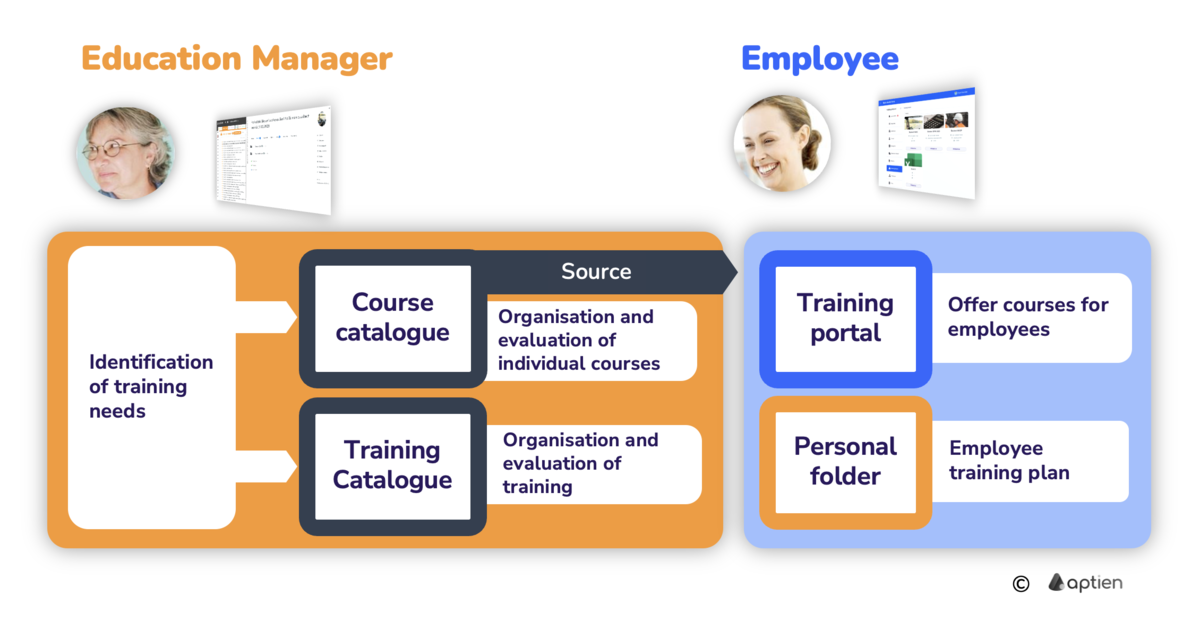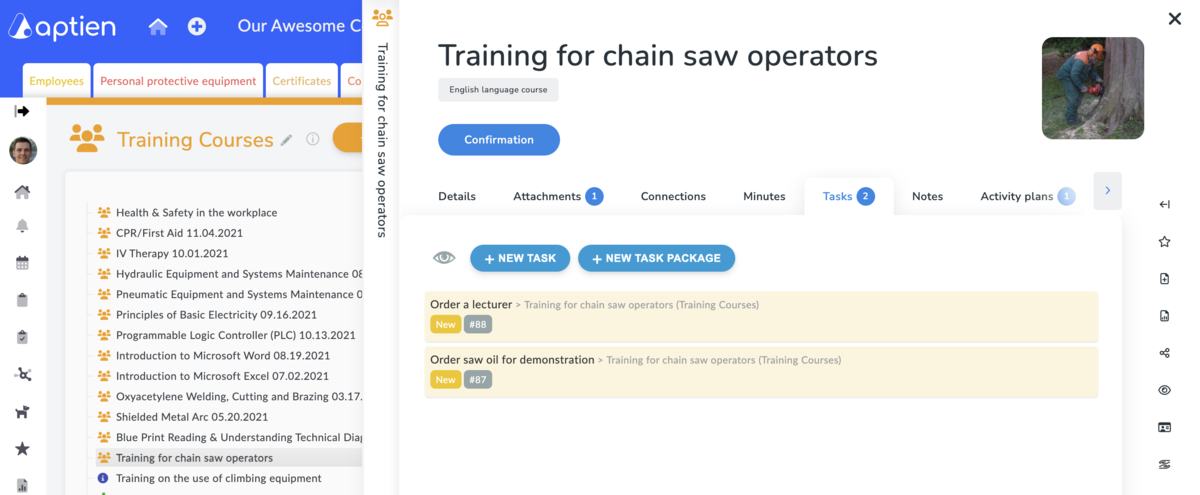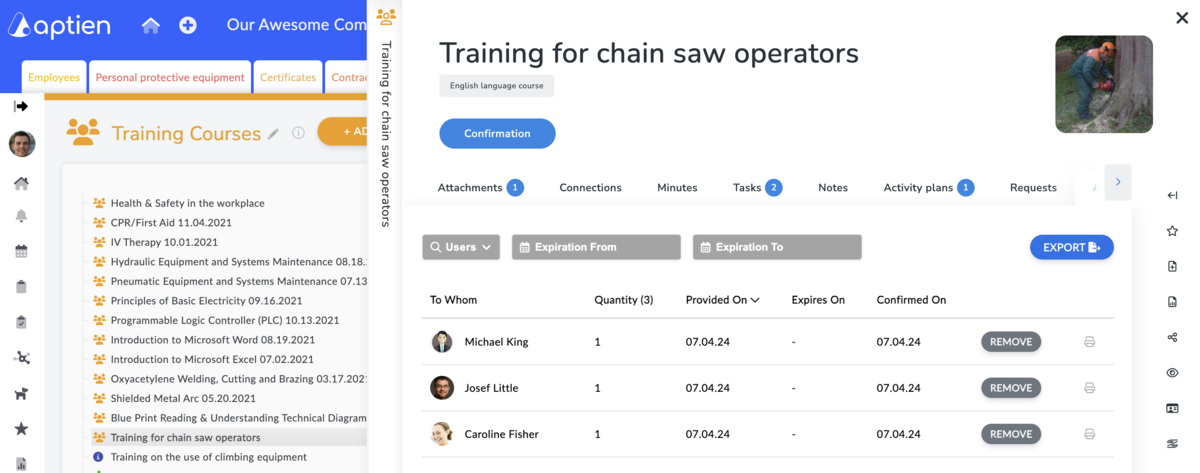This article is intended for HR managers and training and education managers.
As a training manager in your company, you need to:
- have a clear understanding of all training programs, courses, workshops, and learning opportunities you offer employees.
- plan and manage individual training activities company-wide, whether delivered internally or by external providers.
- track employee participation in specific training programs and their completion dates.
Employee Training, Courses, and Educational Programs
Your main job is to manage all aspects of employee training – from planning and scheduling sessions to arranging external courses and providing educational opportunities. To help you, we offer two main tools, depending on how you structure your training:
- Training Calendar is used if you need to manage individual training sessions. Use it to plan and schedule specific training dates, register participants, and track attendance and completion. You can share the current training schedule with your employees. Best for smaller teams and a variety of training events.
- Training Library is used if you have a standard set of training courses and need to store additional information about them. Use it to document all the training courses and educational programs your company offers. It stores details about the content, goals, scope, and instructors for each course.
With these tools, you’ll always have a clear picture of the training your company offers, when each session is scheduled, who has completed the training, and what other educational programs are available to employees.
1. Creating a Training Plan and Overview
- Training plans and options are created based on compliance requirements (mandatory training), job requirements, and supervisor requests or employee development goals.
- Based on the assessment of training needs, you create a list of training sessions, courses, and learning activities.
- Maintain your offerings using a training calendar or course catalog.
2. Planning Individual Training Sessions, Courses, and Workshops
- After you've outlined your training plan, you can start scheduling individual sessions, courses, and workshops, including setting dates on your training calendar.
- Each course or training session has a set date and instructor.
- For external training, you'll need to find and book courses, and sometimes arrange travel and lodging.
- Organizing training often involves managing tasks and notes specific to each session.
- When you schedule a training session, course, or workshop, you can keep all the related tasks in one place. If you're responsible for setting up the training, you can manage all associated tasks from there.
- Just
click the "Tasks" tab for the selected training to assign tasks and view everything related to that particular training.
- If you need to create a file and attach it directly to the training, you can do so in the "Files" tab.
How to Manage Employee Training in Your Company
Maintain a training calendar to schedule and organize individual training dates.
- A Training Calendar lets you plan and organize individual training and course dates. You can also use it to maintain a company directory of training options for your employees, including employee registration and tracking attendance and completion.
If you offer regular training, also use a:
- Training Database. This is useful for larger companies to record all training courses and educational programs offered to employees. It stores details about the content, goals, scope, and providers for each training course. You can also link training to specific skills and job roles.
Employee Training Overview
- Track employee attendance for each training session or course.
- Maintain a roster of attendees for each specific course or training date.
- If you use a company training catalog with training sign-ups, the attendee list will be automatically created.


